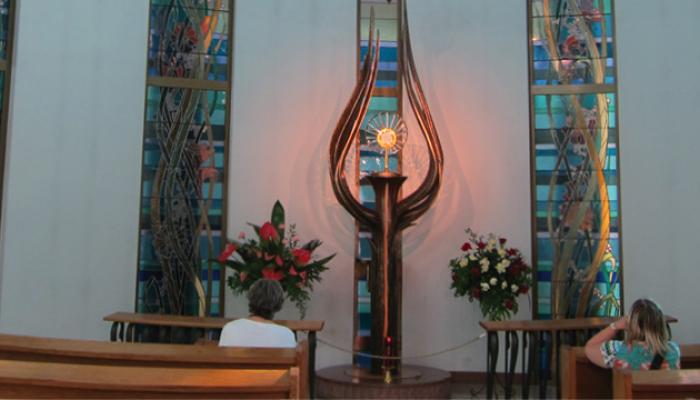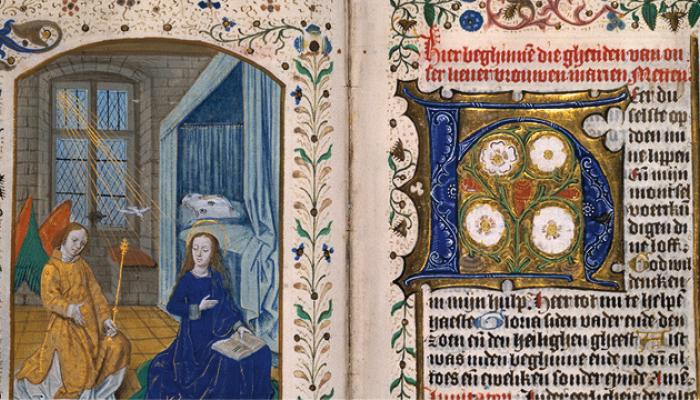
3.12 How do I pray the Rosary?
You can carry a rosary with you at all times. A rosary is a string of beads with five sets of ten beads. After an Our Father, we pray ten Hail Marys.
While praying the rosary, we recall certain events in the lives of Jesus and Mary. These events are called the ‘mysteries of the rosary’. The rosary is like a wreath of prayers (roses) that we offer to Mary, while we ask for her prayer.
The #TwGOD app explains how to pray the Rosary in detail (Pray > Catholic Prayers > 2. The Rosary).
How does the Church pray to Mary?
Above all with the Hail Mary, the prayer with which the Church asks the intercession of the Virgin. Other Marian prayers are the Rosary, the Akathistos hymn, the Paraclesis, and the hymns and canticles of diverse Christian traditions. [CCCC 563]
How do you pray the Rosary?
- In the name of the Father …
- Apostles’ Creed
- Our Father
- Three Hail Marys
- “Glory be to the Father, and to the Son, and to the Holy Spirit, as it was in the beginning, is now and ever shall be, world without end. Amen.”
- Five decades, each with one Our Father, ten Hail Marys, and a Glory Be to the Father.
The complete Rosary consists of Joyful, Luminous, Sorrowful, and Glorious Mysteries.
- The Joyful Mysteries (Monday, Saturday)
- The Annunciation
- The Visitation
- The Nativity
- The Presentation of the Child Jesus in the Temple
- The Finding of the Child Jesus in the Temple
- The Luminous Mysteries (Thursday)
- The Baptism in the Jordan
- The Wedding Feast at Cana
- The Proclamation of the Kingdom of God and Repentance for Sin
- The Transfiguration
- The Institution of the Holy Eucharist
- The Sorrowful Mysteries (Tuesday, Friday)
- The Agony in the Garden
- The Scourging at the Pillar
- The Crowning with Thorns
- The Carrying of the Cross
- The Crucifixion
- The Glorious Mysteries (Wednesday, Sunday)
- The Resurrection
- The Ascension
- The Descent of the Holy Spirit
- The Assumption of the Blessed Virgin Mary
- The Crowning of the Blessed Virgin Mary as Queen of Heaven
[Youcat 481]
The Rosary, precisely because it starts with Mary's own experience, is an exquisitely contemplative prayer... Without contemplation, the Rosary is a body without a soul, and its recitation runs the risk of becoming a mechanical repetition of formulas, in violation of the admonition of Christ: 'In praying do not heap up empty phrases as the Gentiles do; for they think they will be heard for their many words' (Mt 6:7). By its nature the recitation of the Rosary calls for a quiet rhythm and a lingering pace, helping the individual to meditate on the mysteries of the Lord's life as seen through the eyes of her who was closest to the Lord. In this way the unfathomable riches of these mysteries are disclosed. [Pope John Paul II, Rosarium Virginis Mariae, n. 12]





